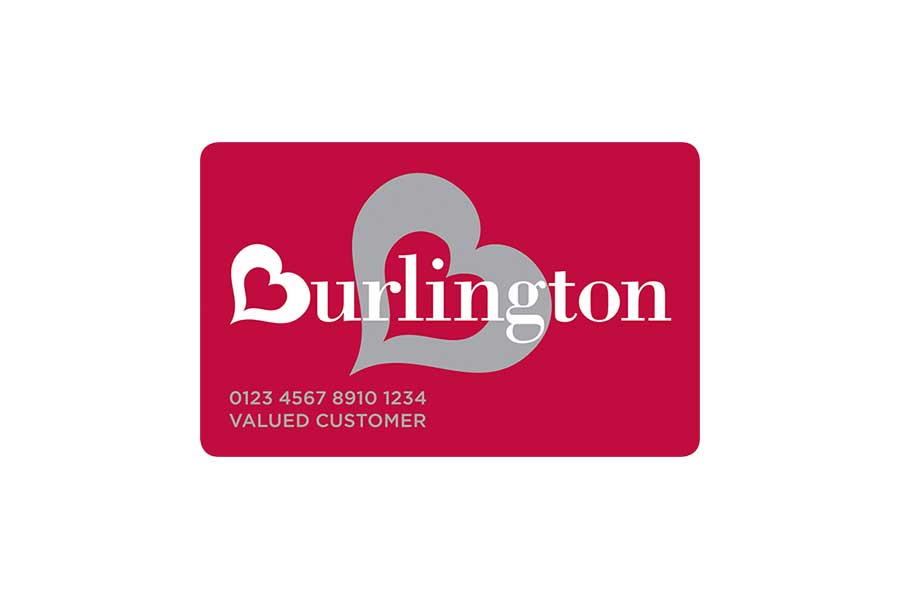With the myriad of credit card offers available, it’s easy to wonder, “How many credit cards is the optimal number?”
While there’s no magic number, understanding the pros and cons of having multiple credit cards can help you make an informed decision tailored to your financial situation.

Why You Need At Least One Credit Card
In the digital era, credit cards have evolved from being mere payment tools to indispensable financial assets. But there are more reasons to have a credit card than just to make Amazon shopping easier.
Here’s why you have to have at least one credit card:
- Building credit history: Regularly using your credit card and making on-time payments monthly can help you establish a robust credit history. A solid credit history is crucial for future financial endeavors such as applying for a mortgage, auto loan, or even renting an apartment.
- Emergencies: Life is unpredictable. Whether it’s an unexpected medical bill, car repair, or any other unforeseen expense, a credit card can act as a financial cushion, providing you with immediate access to funds.
- Security: Credit cards offer better fraud protection compared to other payment methods. If someone makes unauthorized charges using your card, most credit card companies won’t hold you accountable for the charges once reported.
- Rewards and perks: Many credit cards come with benefits like cash back, airline miles, or other rewards. Additionally, they might offer extended warranties on purchases, insurance for rental cars, and even free access to credit scores.
- Convenience: From online shopping to setting up automated bill payments, credit cards offer unparalleled convenience. Plus, they are universally accepted, making international travel and transactions smoother.
- Financial discipline: Owning a credit card can also serve as a stepping stone in cultivating financial responsibility. By tracking your spending, setting a budget, and ensuring timely payments, you can hone your money management skills.
How many credit cards is too many or too few?
Credit scoring models won’t necessarily penalize you for holding an abundance of credit accounts, as long as you don’t charge them all up to their limits.
However, the opposite can be detrimental: having too few accounts can hurt your credit score. Industry guidelines indicate that accumulating five or more accounts, encompassing both credit cards and loans, is a constructive benchmark to aim for over time.
With a limited number of accounts, say three or fewer, it becomes challenging for scoring algorithms to deduce a definitive credit score. Such minimal credit activity often labels one’s credit profile as a “slim file.” Scoring high becomes more elusive with a slim file compared to a more extensive one. Furthermore, potential lenders might perceive slim files with caution.
In the context of a slim file, even minimal credit activities can disproportionately impact your score. For instance, with a limited number of cards, reaching a significant portion of your total credit limit can occur quickly
The proportion of available credit you’re consuming is termed as credit utilization. Typically, top-tier scorers use less than 10% of their available credit. As a general rule of thumb, maintaining your utilization below 30% is commendable. A diverse range of credit cards can assist in ensuring this optimal utilization.
Conversely, managing an extensive array of cards can be demanding. If juggling multiple cards leads to overlooking a payment, your credit score can suffer a significant blow. Prioritizing timely payments is paramount.
The Advantages of Having Multiple Credit Cards
Diversifying Rewards and Benefits
For those who strategically use credit cards, having multiple cards can amplify rewards. Each card may offer unique benefits, from cash back to miles or points to redeem for gift cards, travel, or merchandise. Additionally, some cards provide other benefits, like airport lounge access or travel insurance, which can be handy for frequent travelers.
Boosting Credit Utilization Ratio
One factor that influences your credit score is the credit utilization ratio. This is the percentage of your available credit that you’re using. By having multiple credit cards, you increase your overall credit limit, which can help keep your credit utilization ratio low, provided you don’t max out all your cards.
Backup in Case of Issues or Fraud
Imagine you’re on vacation, and your sole credit card gets compromised. Having a backup card can save the day. A secondary or tertiary card can act as a safety net, ensuring you’re not stranded without a payment method.
The Disadvantages of Having Multiple Credit Cards
Potential for Increased Debt
The allure of more credit cards can sometimes lead individuals down a path of accumulating credit card debt. With increased credit limits, there’s the potential to spend more than you can pay off, resulting in balances that carry over and accrue interest.
Complexity in Management
Managing multiple credit cards means keeping track of various due dates, interest rates, and annual fees. Missed monthly payments can negatively affect your credit report, leading to a dip in your credit score.
Impact on Credit Score
Every time you apply for a new credit card, it triggers a hard inquiry on your credit report. Too many hard inquiries within a short period can temporarily reduce your credit scores. Plus, opening a new credit card account decreases the average age of your credit accounts, another important factor in credit scoring.
Factors to Consider Before Applying for Another Credit Card
Personal Spending Habits
Before diving into a new credit card account, think about your spending habits. Will a new card encourage you to splurge, or will you use it strategically? If you often find yourself unable to pay off your credit card bill in full, another card might not be the best decision.
Financial Discipline
Successfully managing multiple credit cards requires a strong sense of money management. You’ll need to ensure timely payments to avoid late payment fees and maintain a low credit utilization rate across all your cards.
Current Credit Utilization Ratio
Your credit utilization, both per card and overall, heavily influences your credit health. If you’re close to maxing out your current card, instead of getting a new one, consider paying down the existing balances first.
Frequency of Credit Card Applications
Experts suggest spacing out credit card applications. Applying for multiple cards in a short period can negatively affect your credit score, as lenders might see you as high-risk.
How to Effectively Manage Multiple Credit Cards
Use Tools and Apps
Budgeting apps can help you manage multiple credit cards. These apps can help you monitor due dates, interest rates, and balances, ensuring you’re on top of your credit health.
Set Up Automatic Payments
To avoid missed payments, consider setting up automatic payments. This ensures your credit card bill is paid on time, eliminating the risk of late payment fees and potential dents in your credit history.
Regularly Reviewing Credit Card Statements
Make it a habit to review your credit card statements monthly. This practice can help you spot unauthorized charges, understand your spending habits, and identify opportunities to cut back or consolidate debt with personal loans for better interest rates.
Periodically Assessing Your Credit Card Portfolio
Over time, your financial needs and credit card benefits might change. Regularly assess if all your credit cards still align with your financial situation. If you find yourself paying multiple annual fees for cards you rarely use, it might be time to consider closing or downgrading some accounts.
Just be aware of the potential impact to your credit score if you close an account. Steer clear of closing an older account or one with a high, unused credit limit. The average age of your accounts and credit utilization ratio account for 15% and 30% of your FICO score, respectively.
Conclusion
While there’s no one-size-fits-all answer to the question “how many credit cards is too many?” you can decide based on your financial situation once you understand the implications.
Whether you’re content with just one credit card or see the value in having multiple cards, always prioritize responsible spending and credit management. After all, the key isn’t necessarily in the number of credit cards, but how you use and manage them.
Remember, credit is a tool. Use it wisely, monitor your credit reports regularly, and prioritize your overall financial health. Whether you’re considering an auto loan, seeking to improve your credit score, or wondering about the other benefits of credit, always make informed decisions. Knowledge is power, and when it comes to personal finance, it’s your ticket to a stable credit history and a bright financial future.
Frequently Asked Questions
How many credit cards should I have if I’m new to using credit?
If you’re new to credit, it’s recommended to start with just one card. This allows you to familiarize yourself with how credit works, establish good payment habits, and build your credit history gradually.
How many credit cards should I have if I’m rebuilding credit?
For those rebuilding credit, one or two secured credit cards can be beneficial. These cards require a deposit which acts as your credit line and help in re-establishing trust with lenders. Ensure that the card issuer reports to all three major credit bureaus to boost your credit history.
How many credit cards should I have if I have good credit?
If you have a good credit score and a stable credit history, you might be in a position to manage multiple credit cards effectively. However, the optimal number depends on your ability to handle them responsibly. Some individuals with good credit might hold 3–5 cards, utilizing each for specific purposes or rewards.
How many credit cards should I have if I want to maximize credit card rewards?
Maximizing rewards often involves holding multiple credit cards that offer different types of rewards – from travel miles to cash back. A mix of 3 to 5 cards, each optimized for various spending categories, can be a good strategy. However, always ensure that the potential rewards outweigh any associated annual fees.
How many credit cards should I have if I’m in debt?
If you’re currently in debt, especially credit card debt, it’s advisable to focus on paying off your existing balances before considering additional cards. In some cases, obtaining a balance transfer card can be beneficial for consolidating debt to a card with a 0% introductory APR. However, the key is to prioritize repayment and avoid accumulating further debt.
Can having too many credit cards hurt my credit score?
Yes, continuously applying for new credit cards can lead to multiple hard inquiries on your credit report, which can temporarily lower your score. Moreover, managing a plethora of cards increases the risk of missed payments, further jeopardizing your credit health.
How often should I review my credit card portfolio?
It’s a good practice to review your credit card portfolio annually. This ensures that you’re utilizing the best rewards, not paying unnecessary annual fees, and that your spending patterns align with the credit cards you possess.
Should I close a credit card account if I’m not using it?
Before closing an unused credit card account, consider the potential impact on your credit utilization ratio and the age of your credit history. Closing an old account can reduce the average age of your credit accounts, potentially affecting your credit score. If the card doesn’t have an annual fee, it might be beneficial to keep it open, but if it’s costing you, weigh the pros and cons.




